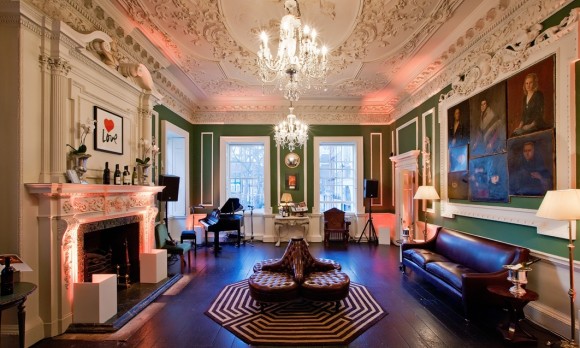The House of St Barnabas
By Figen Gunes
We all know the stereotype of the private members’ club where wealthy bosses dangle empty glasses at their servers, awaiting refills and attention. And celebrities meet up for fluffy chats while enjoying ‘safe zones’ of such venues away from the prying eyes of the public.
But, anyone against the idea of private members’ club should think again. Soho-based charity the House of St Barnabas (HoSB) is shifting its focus from sheltered housing to employment for homeless people by establishing a not-for-profit private members’ club.
When the charity’s finances moved into the red in 2010 something needed to be done. Some hard decisions were made over that period, including reducing team members to part-time working and making some redundancies while a self-sustaining model was created.
“Building a new model has been challenging,” says Sandra Schembri, chief executive of the charity. “It took 26 months – and a lot of money unexpectedly – to get permission to change the building’s use.”
All of Schembri’s energy was directed at transforming the charity into a new operation where the pleasures and needs of one group facilitate the dreams of others. The move aims to help homeless people find lasting work in hospitality after boosting their confidence through work experience at the club.
Schembri sees their club members as “architects of social change” and their support is vital. HoSB already have 300 members drawn from a wide range of professions, some well-known, such as DJ Rob da Bank. The aim is to reach 600 members.
The charity has been housed in a hostel since 1846 nestled in the corner of Soho Square. Their massive £8m Grade I listed building had 40 beds in a huge 26,000 square metre space. Pressured into a change by regulations at Westminster Council, the charity came up with this novel solution, says Schembri.
With the help of private partners, they are in process of creating an employment academy, opening in late September, offering training schemes, which will be integrated into the not-for-profit members’ club.
Schembri emphasises the importance of having a hospitality partner for long-term job creation. “The House is working with Benugo as its hospitality partner,” she goes on. “Benugo have a great number of entry level vacancies each year so this is a fantastic pathway to employment for those we support.
“We realised the model of a members’ club is a better business to integrate our employment training within rather than as private venue hire space. The club offers consistency of hours and staff whereas the events business is too ad hoc to be able to plan what experience and training can be offered when.”
The Employment academy will start running three programmes a year with 25 people per programme each lasting for 12 weeks. Participants will gain an NVQ Level 1 qualification in hospitality. Each student from the academy gets a buddy from the club to work with for 12 weeks.
Barnabas is also keen to give post-programme support for graduates working with Time Bank to offer mentoring to their students.
Not a hub for snooty and out-of-touch members then, but rather an organisation keen to help less fortunate people turn their lives around.















Write Your Comment